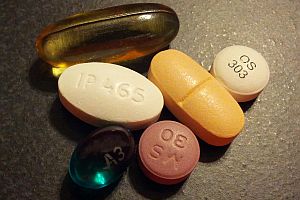Nutritional supplements are one way that many of us try to improve our health and to support our efforts to lose weight, stop smoking, and more. Although using good quality supplements can be beneficial to your health, it can be difficult to determine which ones really fit the bill. Supplement makers are lightly regulated relative to the pharmaceutical industry, and there have been specific ingredients and some products pulled from the store shelves only after they have proved harmful to a number of people. When the New York Attorney General recently revealed the results of a probe into supplement sales at four top national retailers and found that many products didn’t actually contain the correct ingredients, it came as no surprise to some experts who have worried about poor quality control and manufacturer fraud for years.
A Matter of Omission
While many of us might be more concerned about what’s in a supplement that shouldn’t be, it can also be a big problem if the product doesn’t actually contain the key ingredients listed on the label. If an individual is depending on a particular supplement to remain healthy, the lack of key ingredients could have serious consequences that the user may not be aware of. In a number of cases, key ingredients had apparently been replaced with cheap fillers or other alternatives that not only failed to meet the specific nutritional need but that also had the potential to cause harm to some consumers.
Herbal Ingredients: What You May Not Know
Many supplements use herbs in their products as their main ingredients. Because these herbs are “all natural”, many people mistakenly believe that they cannot harm you or have side effects similar to those of prescription drugs. In reality, herbs can and do interact with each other, with other foods and with medications to produce unexpected results. And this is true even when nutritional supplements are properly labelled. When supplements are manufactured poorly and/or deliberately misrepresented through their labeling, this can make matters even worse.
Need an example? Consider the consumer who believes that she is purchasing an herbal supplement that is wheat-free when. Now suppose that the supplement contains NONE of the herb listed as the primary ingredient but that it DOES contain wheat. If the consumer has a wheat allergy or is on a gluten-free diet, taking these supplements could cause health problems that would be both serious and completely unexpected. In the New York Attorney General’s investigation, some of the products that were found to be improperly labeled were:
- Ginkgo Biloba
- John’s Wart
- Valerian Root
- Probiotics
- Ginseng
- Garlic
- Saw Palmetto
- Echinacea
Protecting Yourself from Low Quality Supplements
By now it should be clear that choosing a nutritional supplement isn’t only a matter of selecting the right type to get the health benefits you’re looking for. It’s also a matter of purchasing a high-quality product that contains ONLY what it should. However, the current regulatory approach—essentially self-regulation–doesn’t inspire confidence and leaves consumers more vulnerable to shortcuts in manufacturing and quality control as well as deliberate misrepresentation or fraud.
What can be done? Several very well-regarded companies manufacture high-quality nutritional supplements to the same standard as heavily regulated pharmaceutical firms. Many of these companies distribute their products exclusively through the offices of healthcare professionals, including chiropractic physicians and nutritionists. If you’re interested in learning more about nutritional supplements and what you can do to be sure that the ones you take are safe and effective, we encourage you to call or visit our office today!

